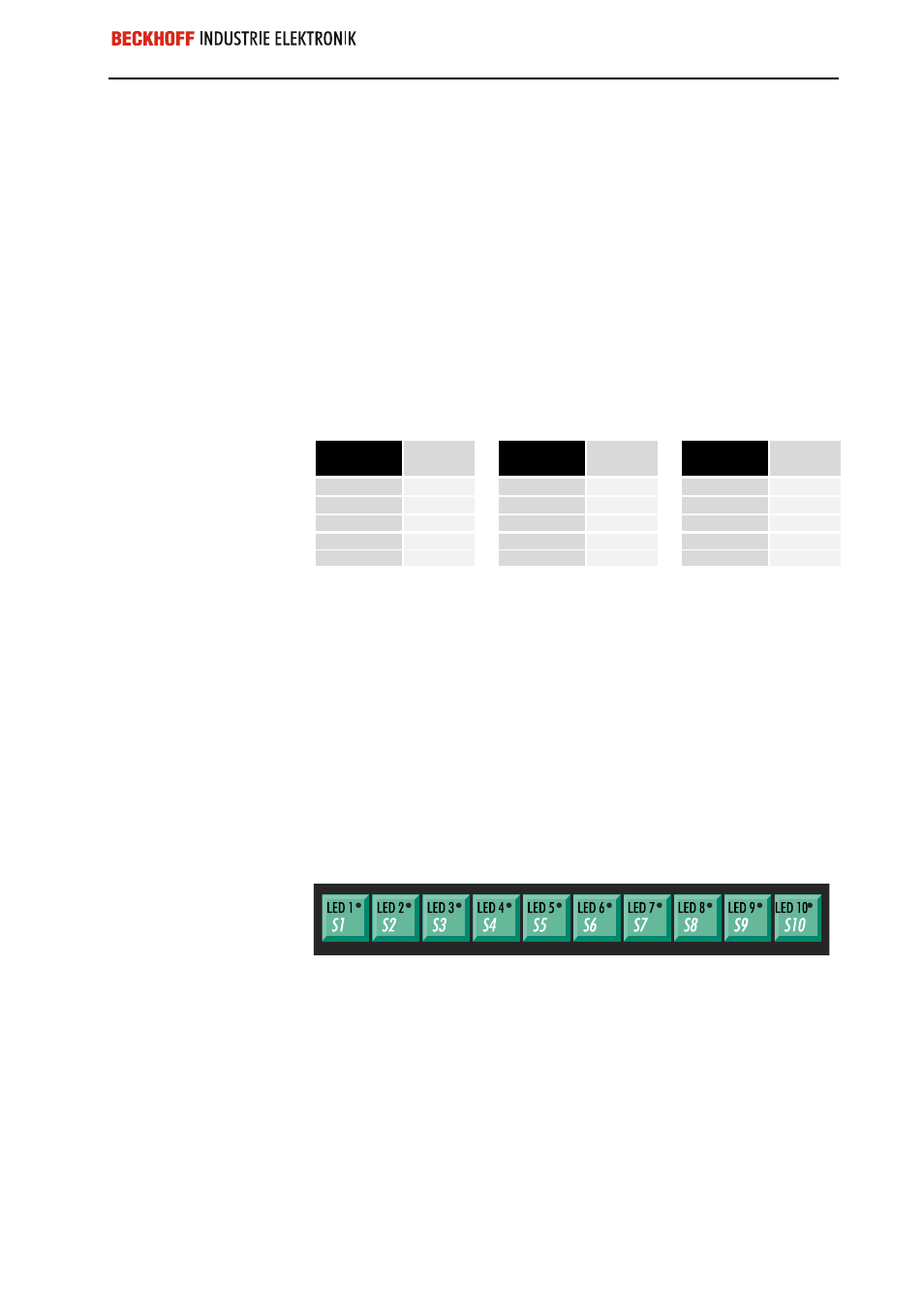Programming, The 8255 parallel input/output chip, The special keys – BECKHOFF C1230S User Manual
Page 8

Eiserstraße 5 / D-33415 Verl / Phone 05246/963-0 / Fax 05246/963-149
8
ISA Bus interface card C1230S
C1230S
Programming
The 8255 Parallel Input/Output Chip
There are three 8255 parallel input/output chips, PIOs for short, on the
C1230S ISA bus card. One of these components interrogates the special
keys on the front panel and controls the LEDs. If your PC does not have
special keys, the chip can be used for other purposes. The connections to
the chip are brought to the C1230S card’s front panel interface in TTL
compatible form. The second PIO controls an uninterruptible power supply.
You need the C2000BAT UPS control board in order to connect the UPS.
The third chip is not used on the C1230S card.
Each component has three 8-bit ports that can be configured as inputs or
outputs. The configuration is made through the control register. Each port
and each control register is located at a memory address.
The addresses of the three
PIO chips on the C1230S
Front panel
Address
UPS
control
Address
not used
Address
Port A
220H
Port A
230H
Port A
240H
Port B
221H
Port B
231H
Port B
241H
Port C
222H
Port C
232H
Port C
242H
Control
register
223H
Control
register
233H
Control
register
243H
In the control register of an 8255 parallel input/output component you
specify which port will function as input or output.
Configuration:
After power-up, write 91H
into address 223H and 93H
into address 233H.
After a reset, or after the computer has been switched on, all the ports are
configured as inputs. In order to configure the chip appropriately for its
tasks in the industry PC, write the value 91H into the control register at
address 223H, and 93H into address 233H. The configuration is retained
until these addresses are over-written, or until the computer is re-booted.
The Special Keys
The industry PC has up to 10 special keys on the front panel, each of
which contains an LED.
Each of the 10 special keys
contains an LED
The special keys on the front panel are not connected via the keyboard
interface, but are interrogated by means of port A and the lower part of port
C of the parallel input/output chip, whose address range lies between 220H
and 223H.
